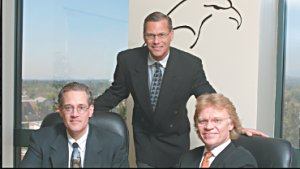While Perrin left Mark-Taylor because he felt like he could no longer advance, Stuart Gruendl left his job, as executive vice president and director of development for SNK Realty Group in San Francisco, when he realized that his capital sources were relying on him more than SNK. “It is such a people business that when an institution understands your personal business philosophy, it’s banking on your personal talents more than it is on the collective talents of the organization,” he says.
Once this occurred to him, the decision to leave was easy. “I said, ‘Hey, I can go out on my own and surround myself with good people I have met in business and go out and execute just as successfully as I had in a larger organization,'” he says. “I will have greater financial benefits because I am the owner.” And he did just that, starting his new company, BayRock Residential LLC in Emeryville, Calif.
The Business of People While most executives are eager to get their new businesses started, it’s often good for them to exercise a bit of caution and develop a plan before jumping in. One key thing to consider is partners. In the best case, a good partner can help balance a multifamily executive and help a business grow. In the worst case, a bad partner can leave a business stalled at the starting gate.
Tony Zanze, a partner in Hamilton Zanze & Co. in San Francisco, decided on a strategy, product type, and location when he started his own company. But in hindsight, Zanze admits he made one mistake, which almost destroyed his business before it got off the ground – he picked the wrong partner.
He found apartments he liked in the Oakland area and purchased them with a partner and his father. Zanze’s father provided most of the money, while the partner served as the property manager and Zanze, the asset manager. The problem was that the partner was not very detail oriented. “It turned out he was more of a big picture guy,” Zanze explains. “We were not seeing any books, and the accounting was not getting done. He started producing paperwork that did not make sense. Eventually, we learned the bills were not being paid.”
Zanze and his father removed the partner and hired a small property management firm to help them turn their portfolio around, and in the process, found themselves a new partner. Mark Hamilton, the husband of one of the property management firm’s owners, owned 10 properties in the Oakland area. He had an office, administrative help, a solid business model, a strong local network of due diligence people and contractors, a good knowledge of the Bay area market, and, most important, the desire for a partner.
The new partners skills complement each other. Hamilton finds the properties and handles management and customer relations, while Zanze focuses on due diligence, capital markets, financing, and investor relations.
Others can attest to the importance of a good partner. David Schwartz, managing member of Waterton Associates LLC in Chicago, teamed up with Peter Vilim, whom he worked with at AMLI Residential Properties Trust in Chicago in the mid-1980s. Schwartz not only knew he could trust Vilim, but he also knew what Vilim brought to the table. “My background was in acquisitions, and I thought I could be good at raising money,” Schwartz recalls. “But I needed someone who could manage the properties, so I brought in Pete.”
Good partners can also give a firm flexibility, such as the case of Friend’s two partners, Melton and Martin. Melton’s forte is financing, specifically through bonds, which has allowed Eagle to tap into the low interest rates that bonds provide, according to Friend. Martin’s strength is in construction, which can help it tackle tricky rehab projects without going to outside contractors.
